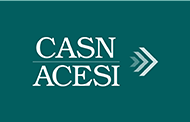Translated Title
Transformer l’internationalisation universitaire en sciences infirmières au Ghana
Credentials
Emmanuel Marfo (PhD-Student)
Desire Urindwanayo (PhD-Candidate)
Abstract
The development of formal nursing education in Ghana has been influenced by international organizations since its beginning in the mid-1940s. Some of the 218 accredited nursing institutions in Ghana engage in academic internationalization through several international activities. Today, the focus of nursing education and healthcare delivery worldwide appears to be shifting towards globalization owing to the emerging market economies and political alliances that lean towards neo-liberal perspectives. In this paper, the aspects of internationalization and globalization of Ghanaian nursing education that need to be retained and those aspects that require transformation are discussed. International student exchange programs with a western Canadian university and the introduction of French and Sign Languages into nursing programs were identified as internationalization efforts in Ghanaian nursing education that should be promoted. The need for a policy review regarding a Ghanaian university's international activities with the Canadian university is proposed to ensure equal benefits for students from the collaborating schools. This paper calls for a revision in the Ghanaian university nursing curriculum to integrate courses on global and immigrant health, interdisciplinary education, and team-centric leadership preparation to enhance undergraduate nurses with global working skills.
Résumé
La formalisation de la formation en sciences infirmières au Ghana a été influencée par des organismes internationaux depuis le tout début, c’est-à-dire au milieu des années 1940. Certains des 218 établissements d’enseignement en sciences infirmières agréés du Ghana s’engagent sur la voie de l’internationalisation universitaire à travers diverses activités internationales. Aujourd’hui, l’orientation de la formation infirmière et de la prestation des soins de santé partout dans le monde semblent être déplacée vers la mondialisation en raison des économies de marché émergentes et des alliances politiques qui tendent vers le néolibéralisme. Cet article traite des aspects de l’internationalisation et de la mondialisation de la formation infirmière au Ghana qui doivent être conservés et de ceux qui doivent être transformés. Des programmes internationaux d’échanges d’étudiants avec une université de l’Ouest canadien et l’intégration du français et de la langue des signes dans les programmes de formation en sciences infirmières ont été désignés comme des efforts d’internationalisation et de mondialisation qui doivent être encouragés. Nous proposons que la politique des activités internationales d’une université du Ghana auprès d’une l’université canadienne soit révisée pour veiller à ce que les étudiantes des deux écoles qui collaborent jouissent des mêmes avantages. Cet article préconise la modification du programme de formation en sciences infirmières du Ghana afin d’y inclure des cours sur la santé mondiale et des immigrants, une formation interdisciplinaire et une formation au leadership axée sur le travail en équipe qui pourraient permettre aux infirmières détenant un premier cycle universitaire d’acquérir des habiletés professionnelles mondiales.
Recommended Citation
Marfo, Emmanuel Akwasi and Urindwanayo, Desire
(2021)
"Transforming Academic Internationalization in Nursing Education in Ghana,"
Quality Advancement in Nursing Education - Avancées en formation infirmière:
Vol. 7:
Iss.
1, Article 7.
DOI: https://doi.org/10.17483/2368-6669.1253



